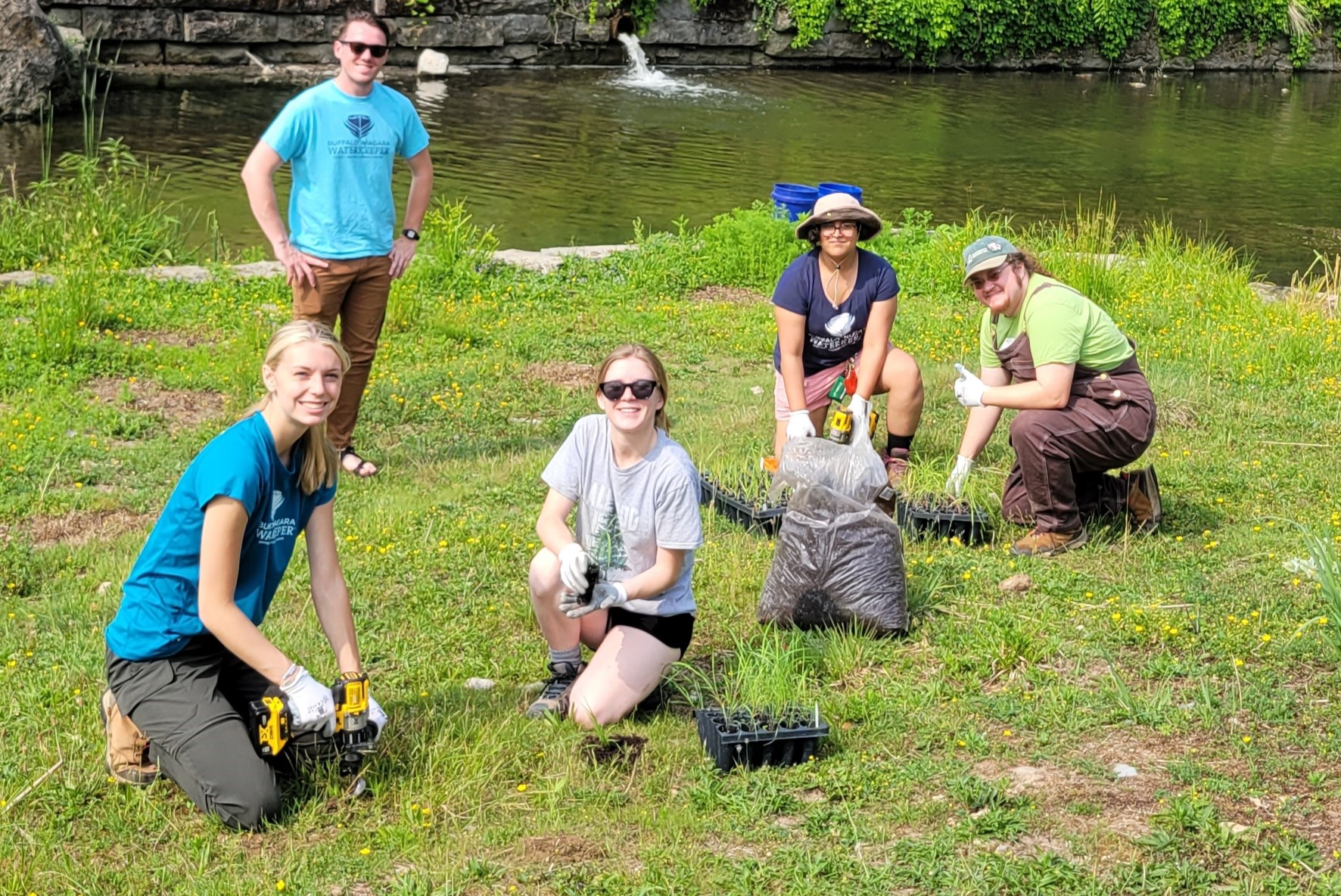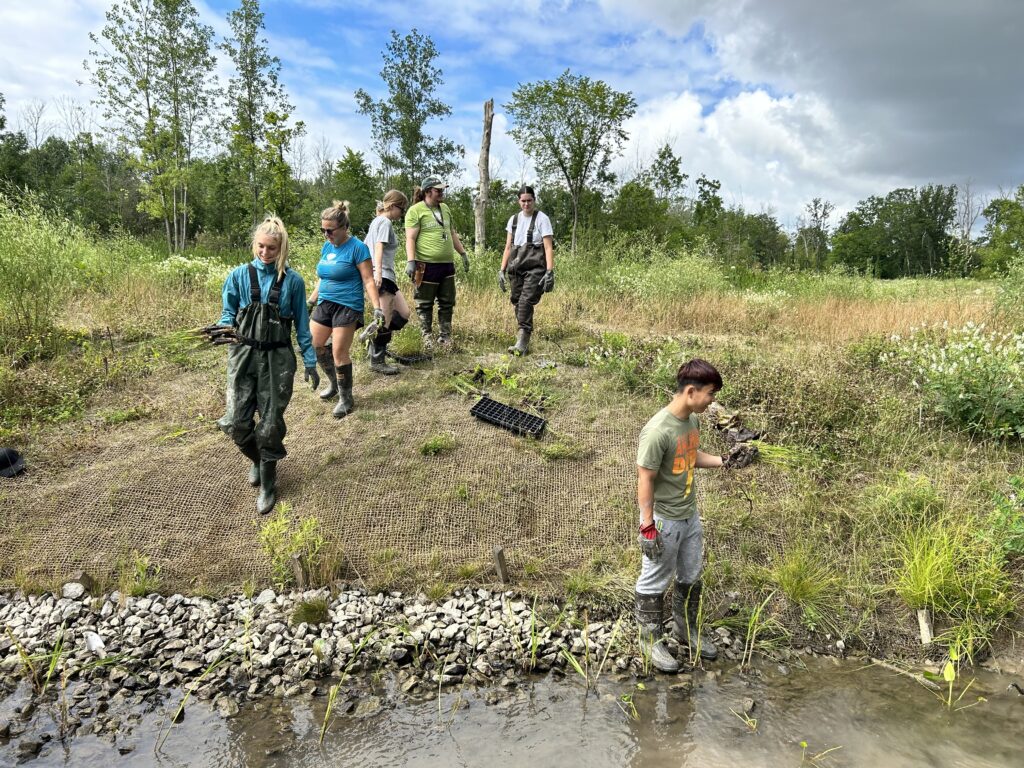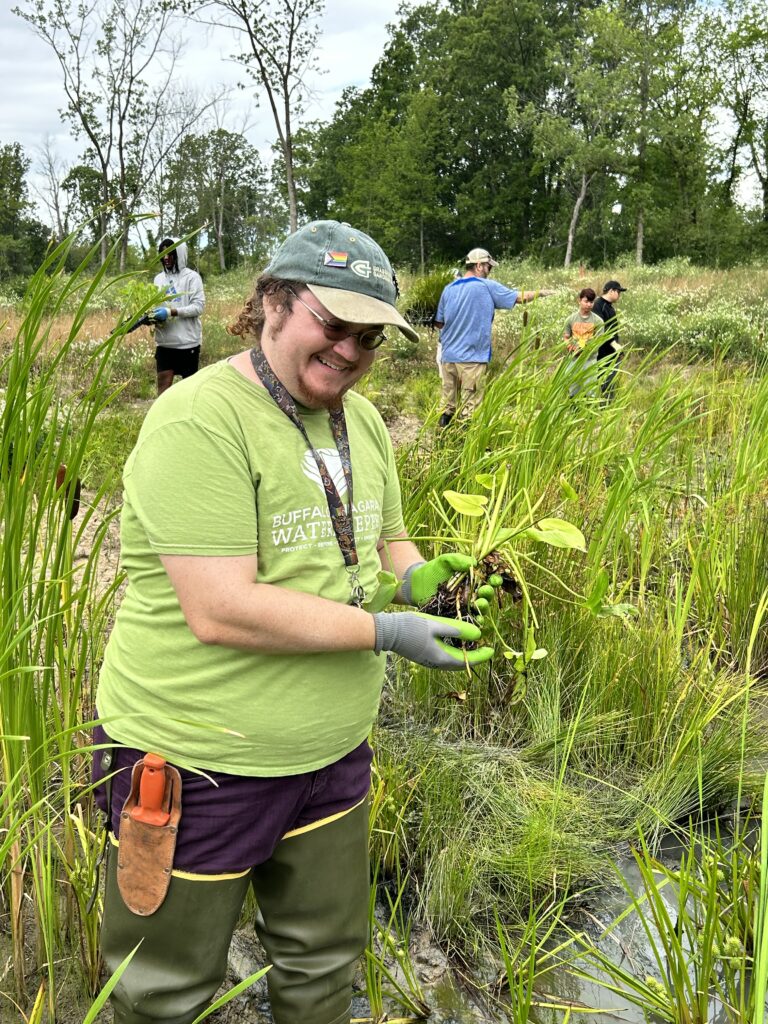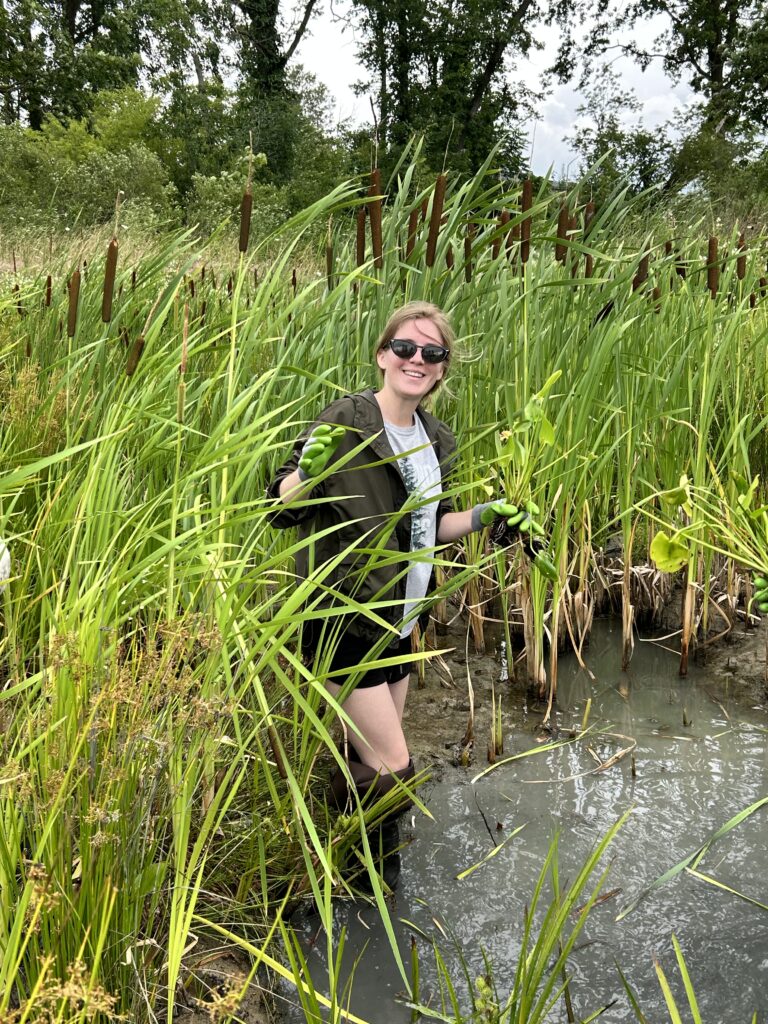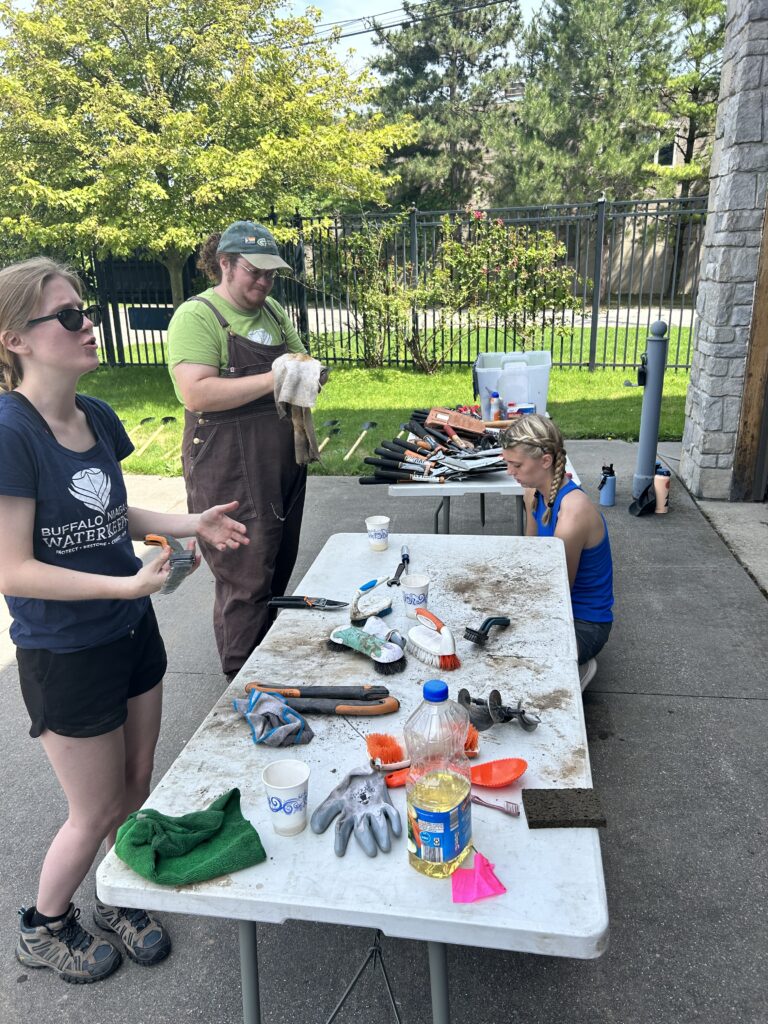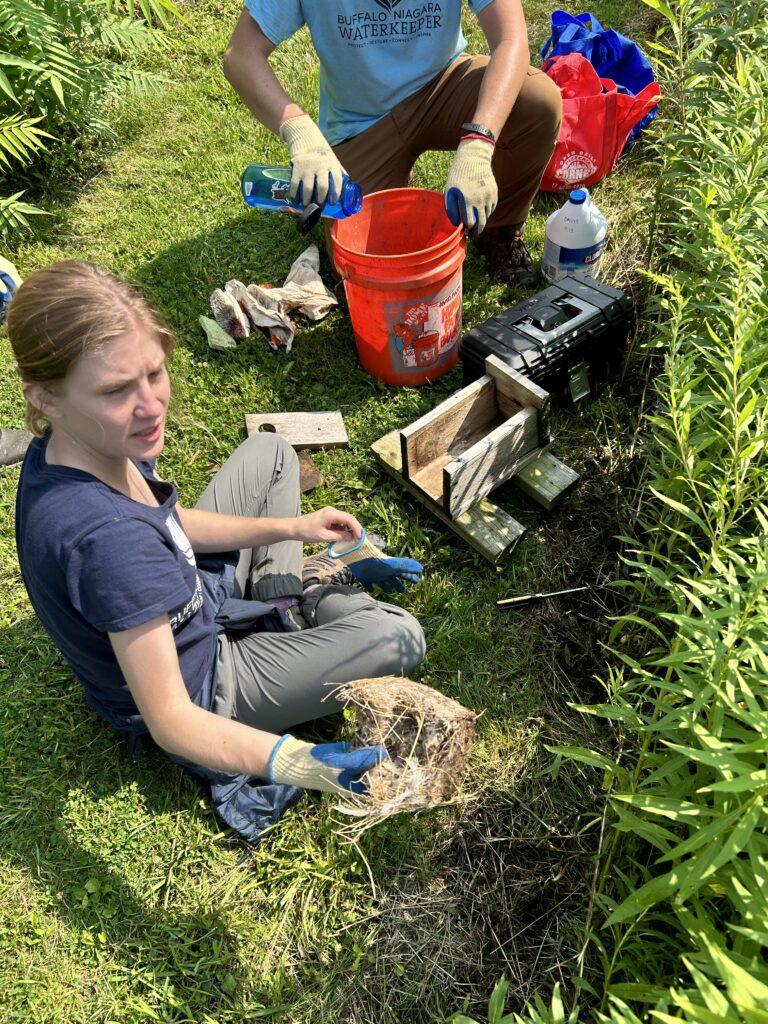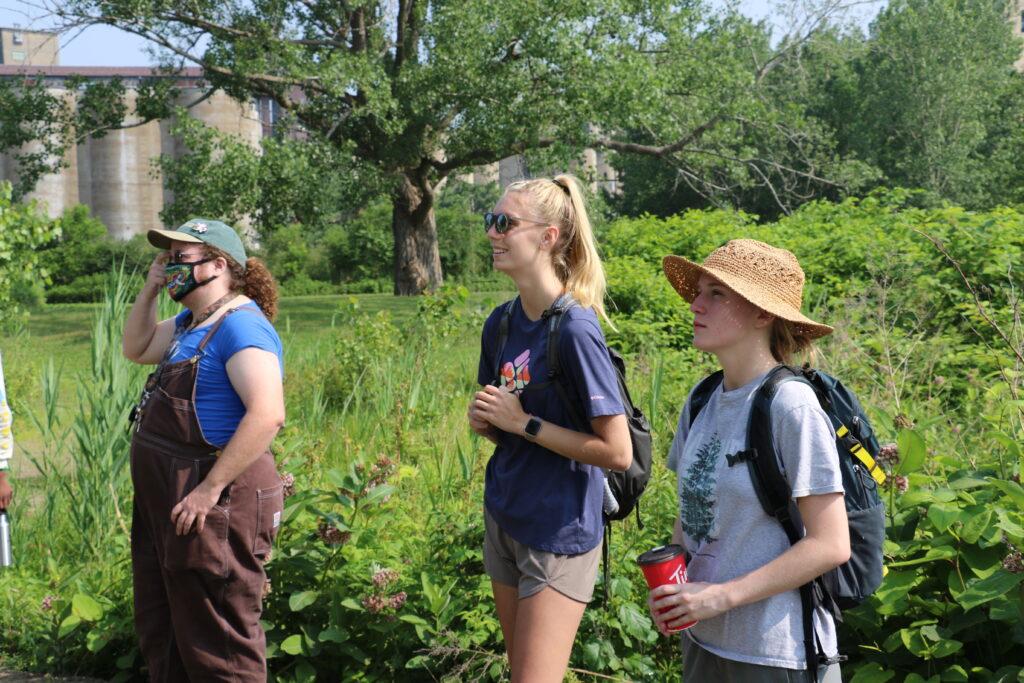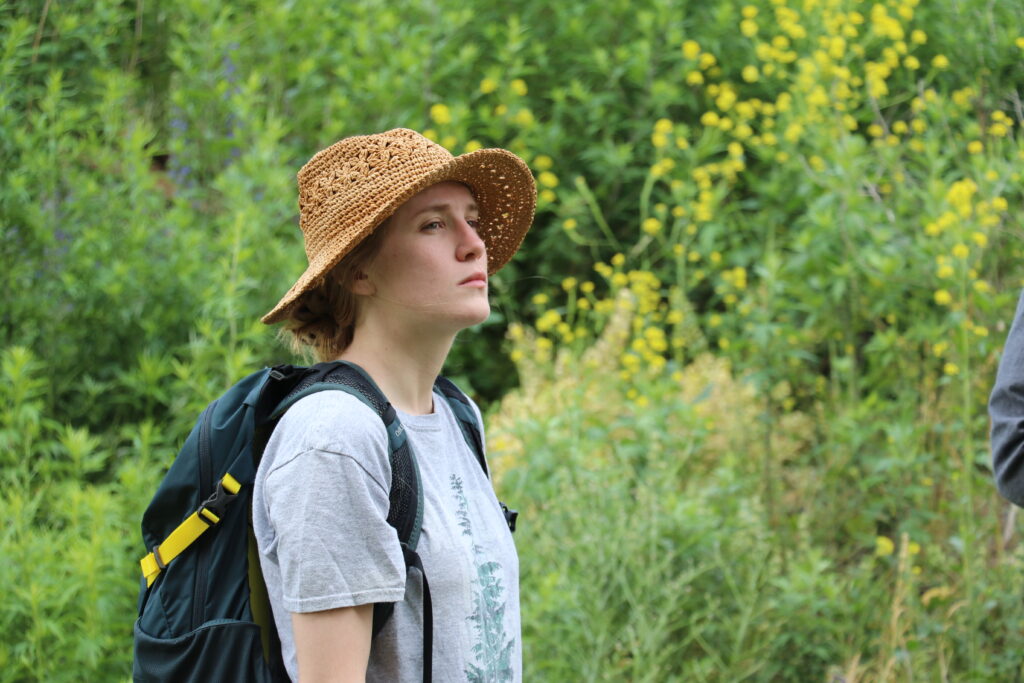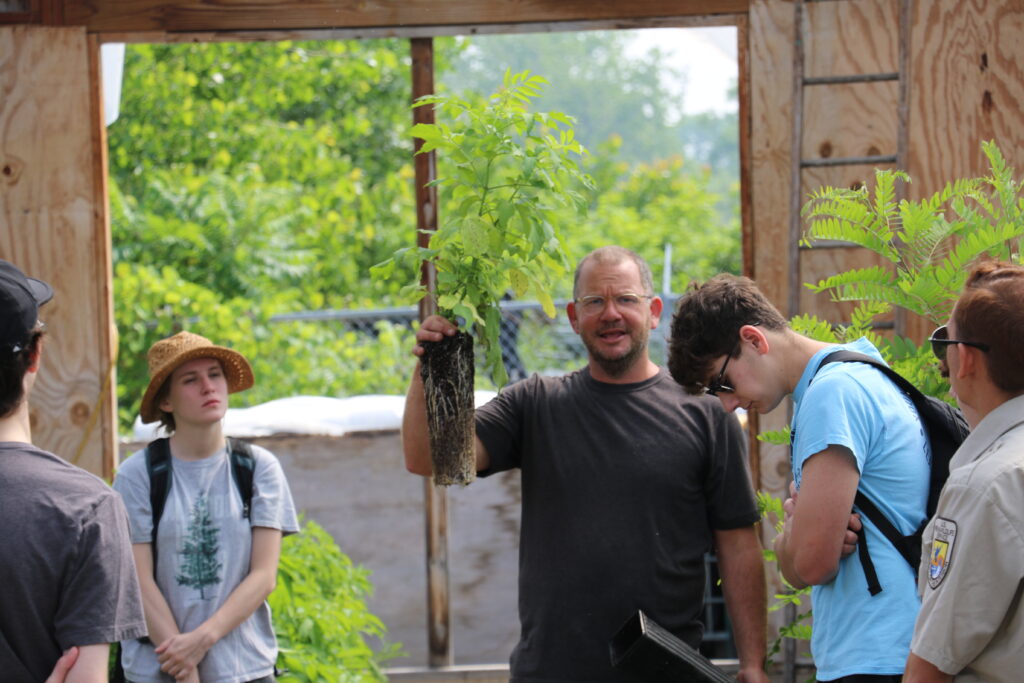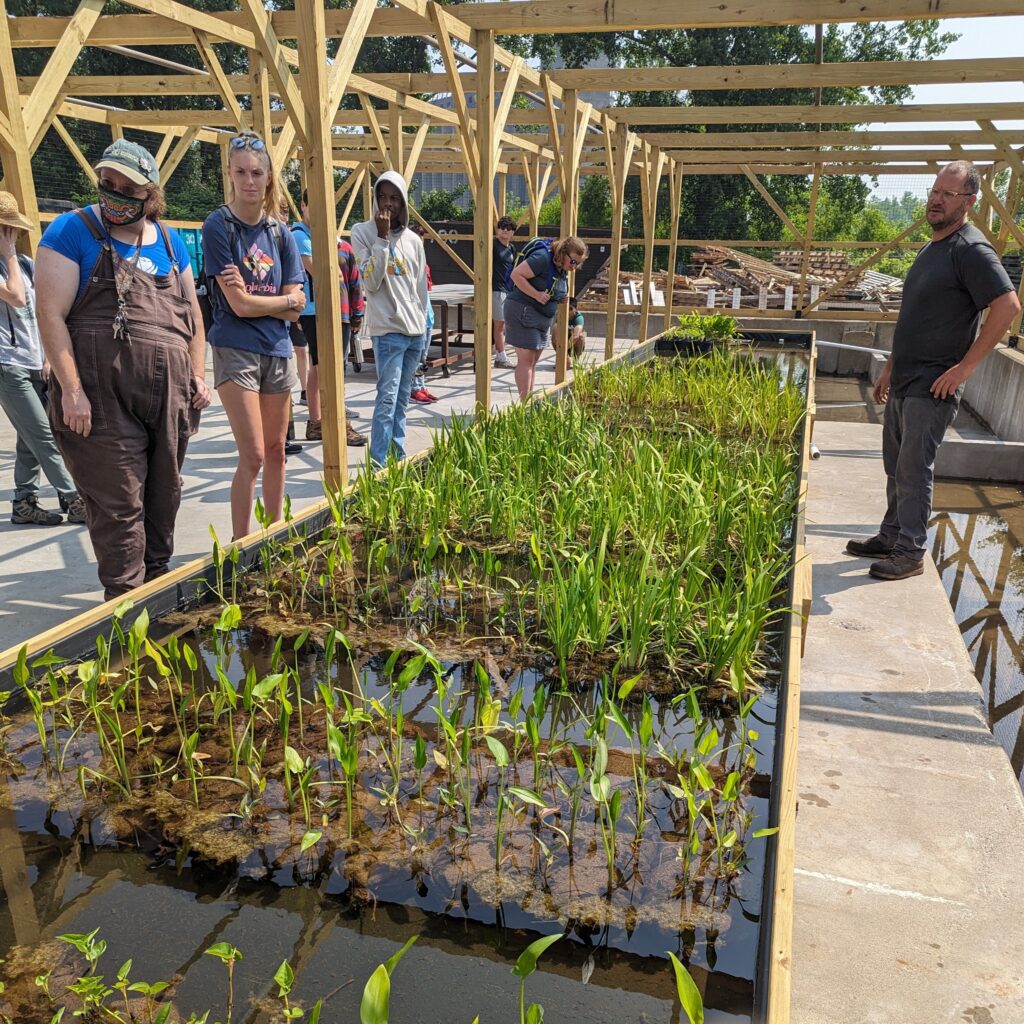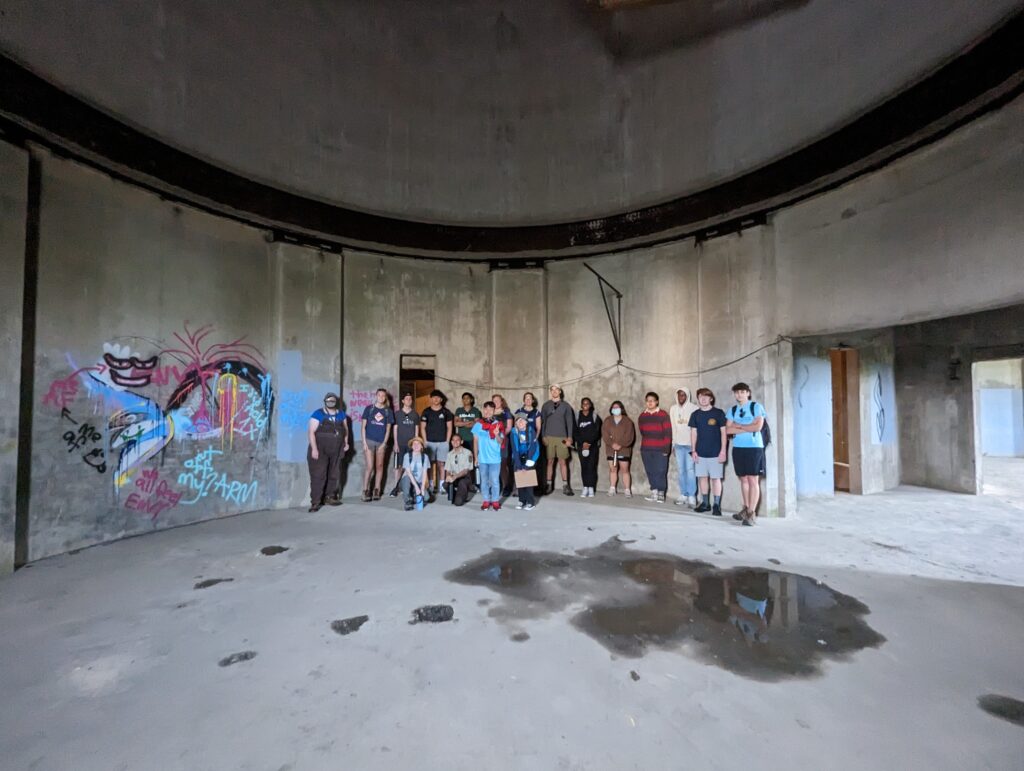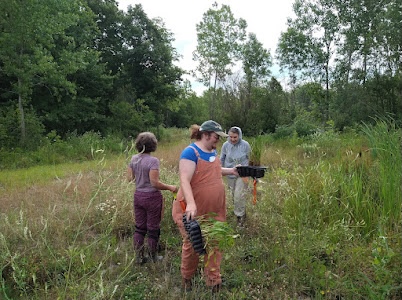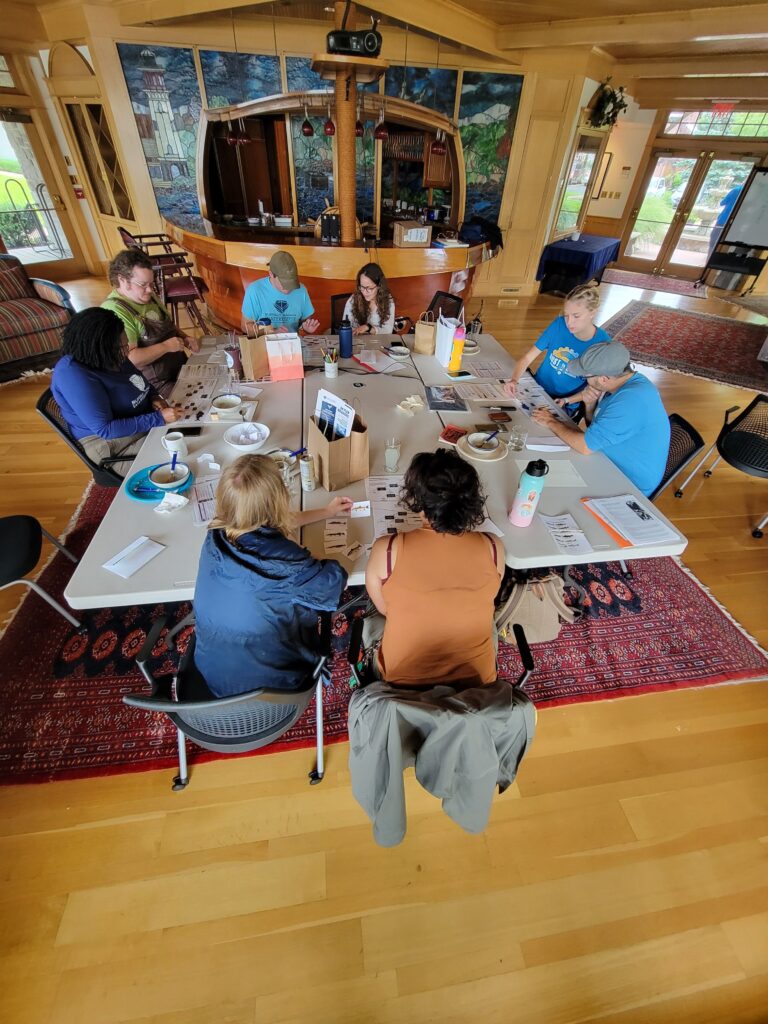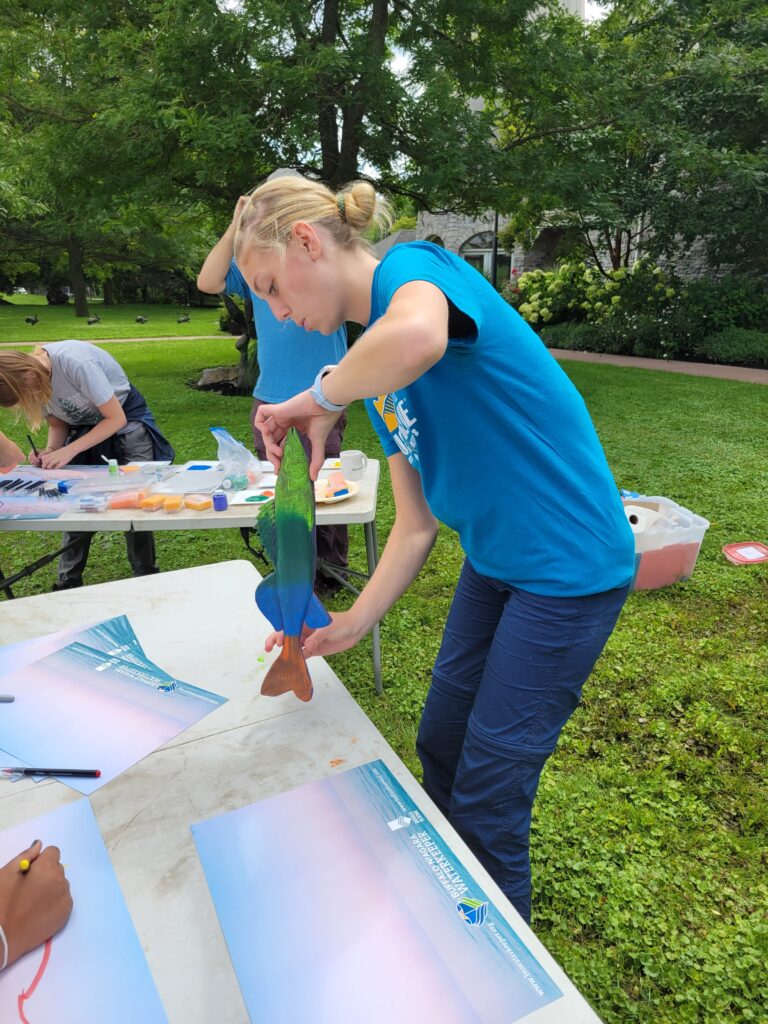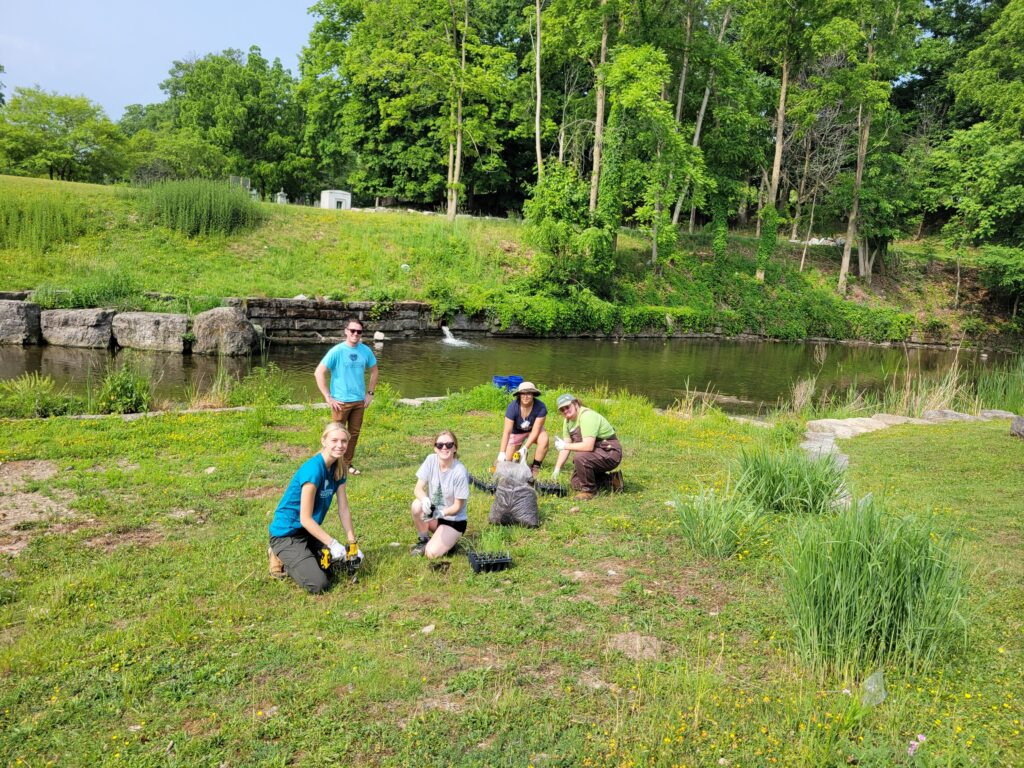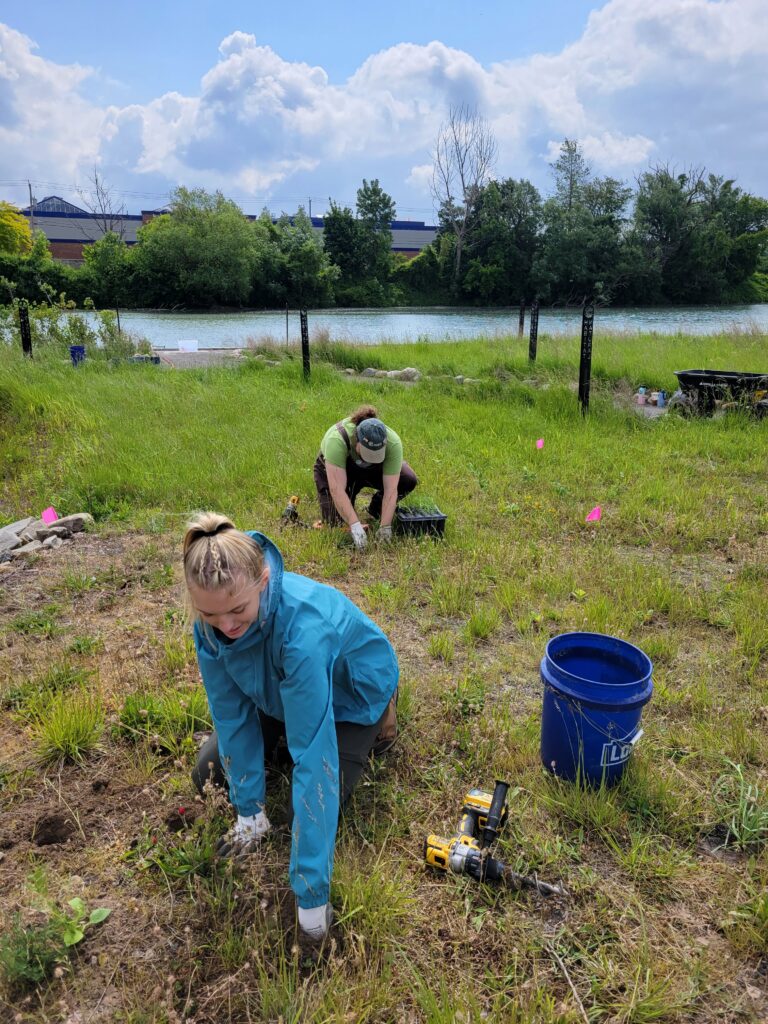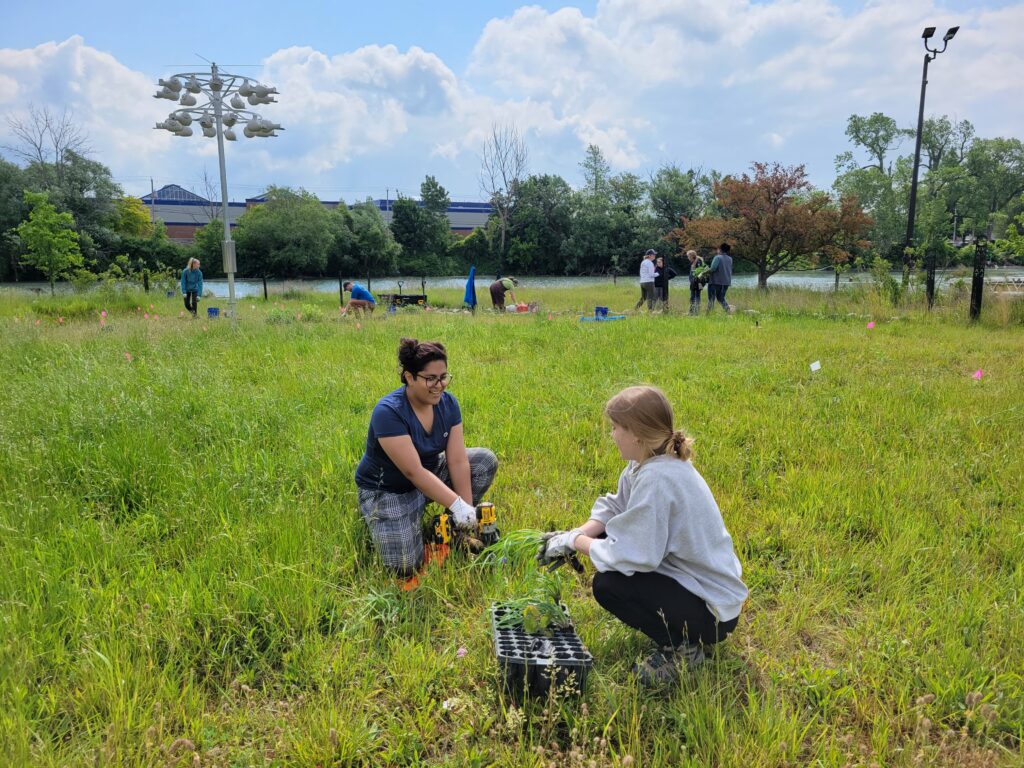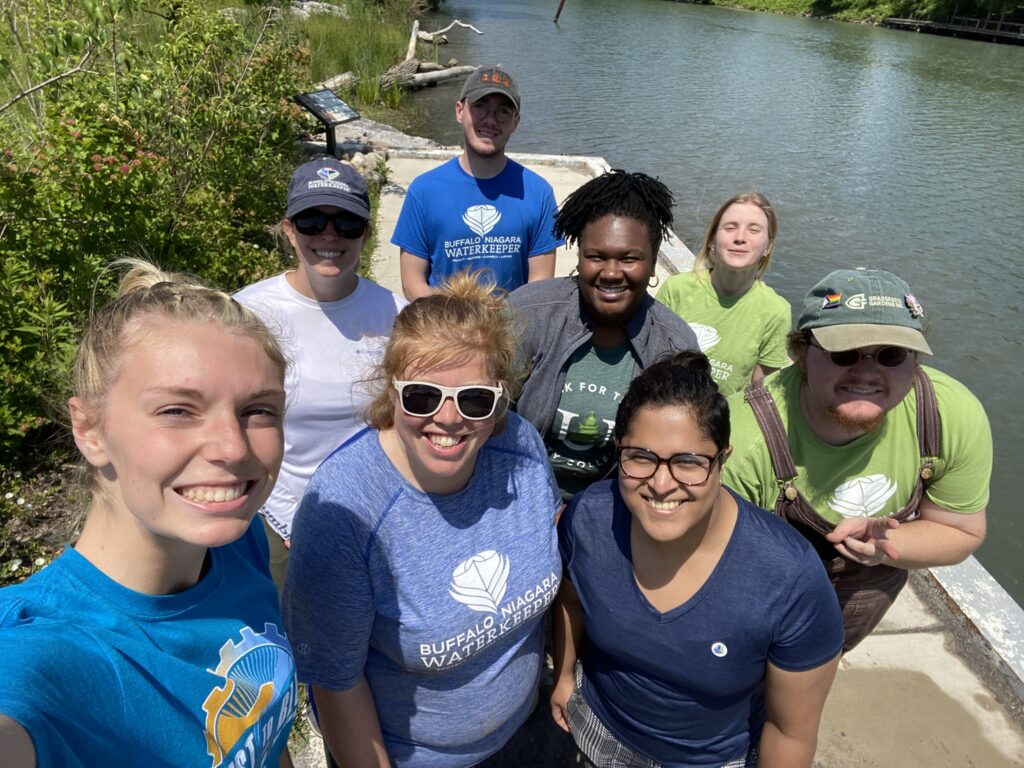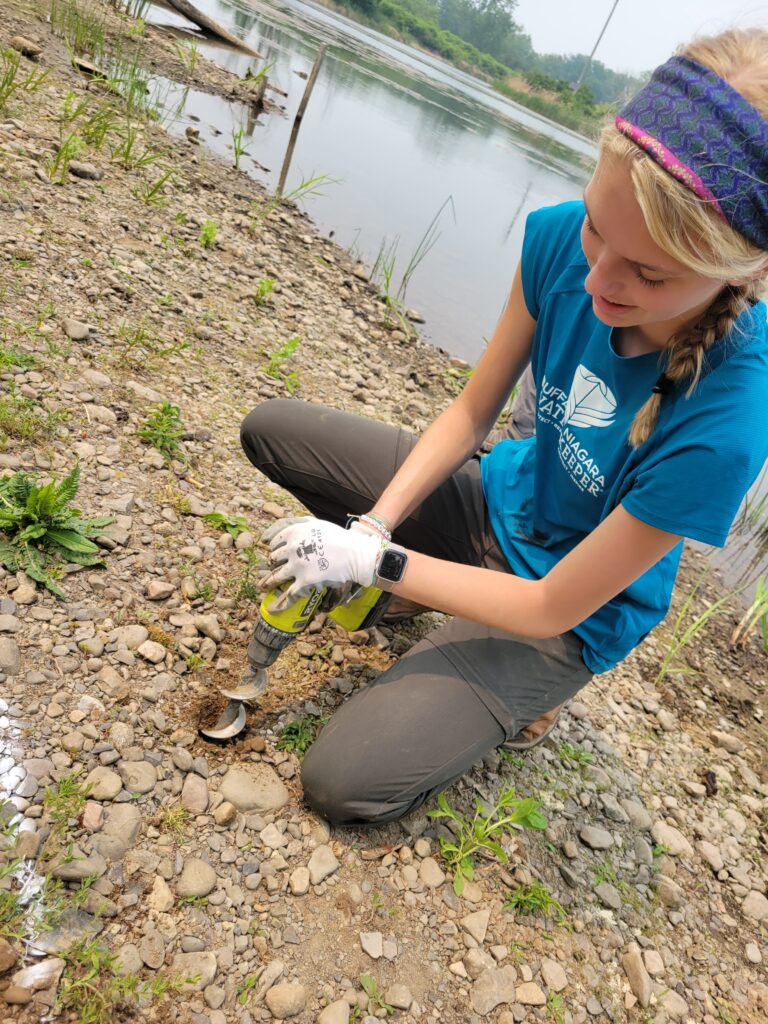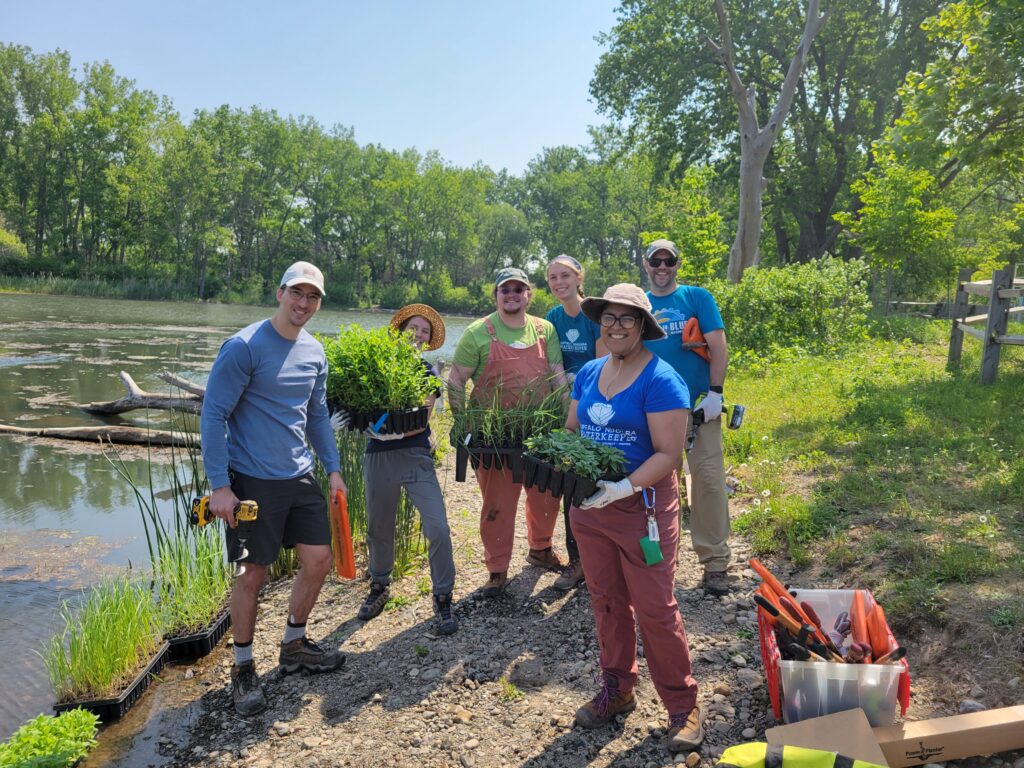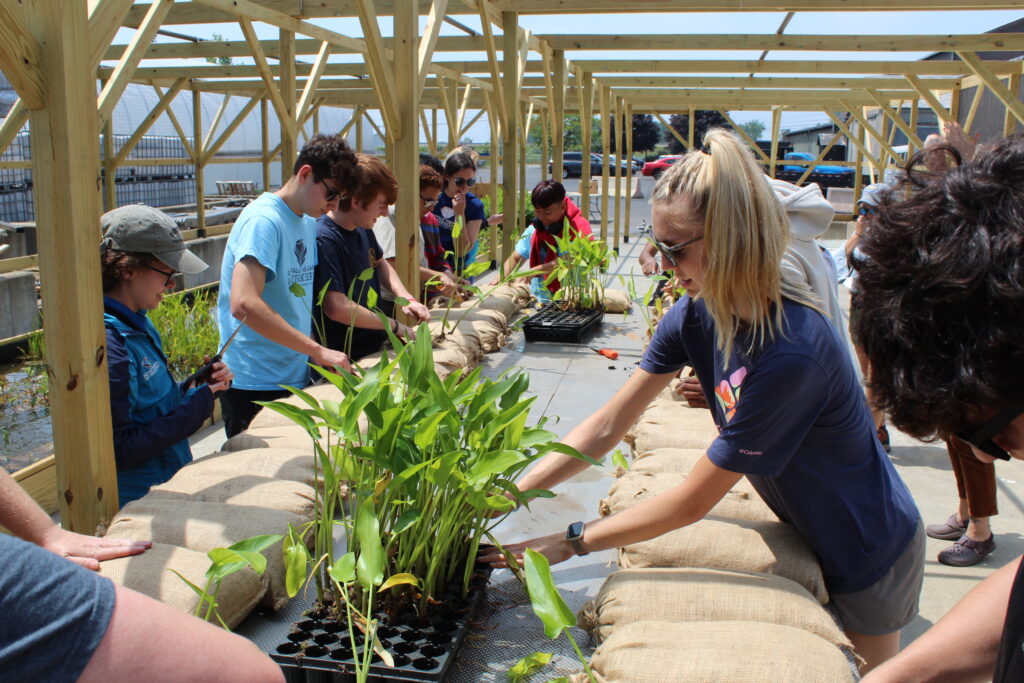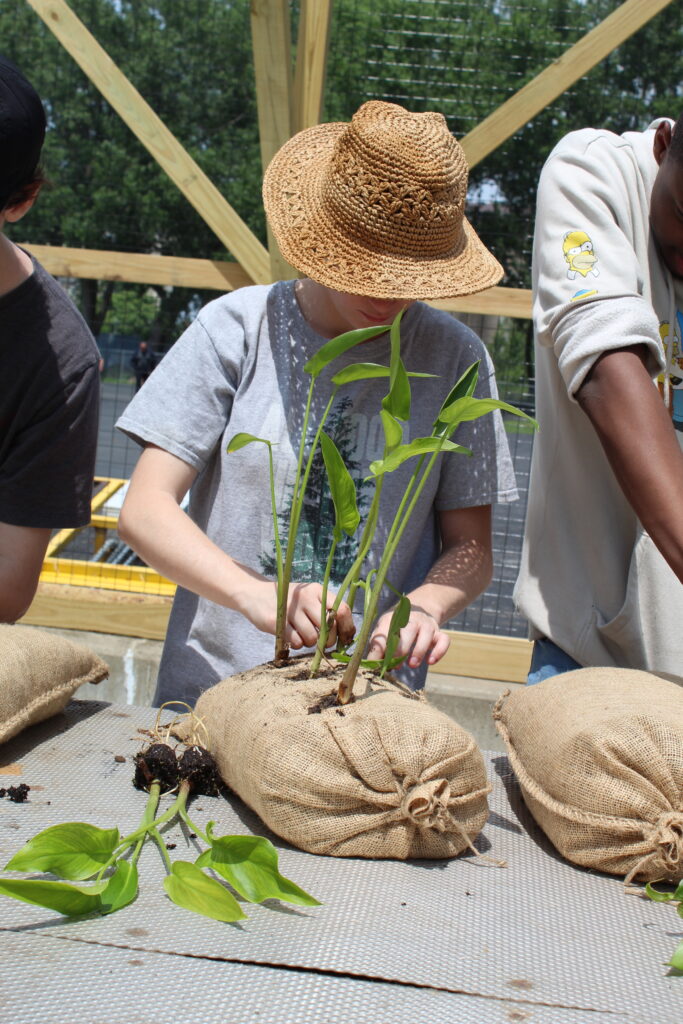Our restoration sites around the region have never felt more love than they did this summer! Over the past few months, we had three people – Kat, Sam, and Skyler – join our inaugural Restoration and Adaptive Management Program (RAMP) to be summer stewards. Since the end of May to early August, they planted over 1,500 plants, installed and cleaned bird boxes, manually removed nuisance plant species, made plantings for wetland habitats, cleaned litter and removed old rope and fencing, and repaired plant protection devices.
Led by Wendy Paterson, Buffalo Niagara Waterkeeper’s Senior Program Manager for Community Engagement, the RAMPs also worked alongside high school students and shared their passion for watershed restoration. This program connected students and young professionals to each other from Erie and Niagara County and with local environmental experts from at least five partner organizations. It also gave them a close look at the restoration work being done at 10 locations.
The 2023 RAMP season is ending, but before it does, learn more about Kat, Sam, and Skyler and the work they did. And a big thanks to their work this summer!
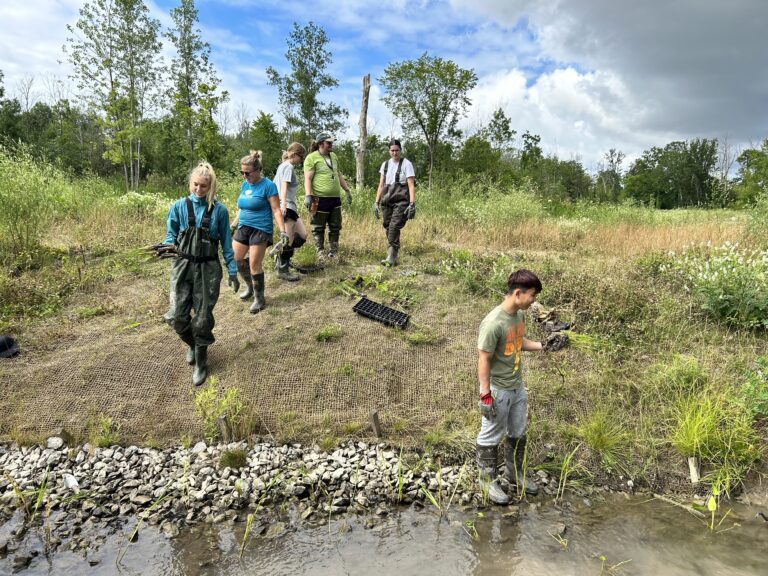
This program was supported by the East Hill Foundation, New York State Sea Grant, New York Power Authority, the Niagara River Greenway Ecological Standing Committee and M&T Bank.
First: What’s a RECO RAMP?
It stands for our RestoreCorps (the RECO part) Restoration and Adaptive Management Program (the RAMP part).
This program was made for those who wanted mentorship opportunities in ecological services and community engagement. The goal was to teach an understanding of: invasive species management, wetland plantings and trail upkeep, all while gaining experience in networking with local non-profits, enhancing resumes and gaining in-field experience.
What did the RAMPS do?
They had to attend 15 sessions from the end of May and on to early August. These included actual plantings at places along Scajaquada and Tonawanda creeks, co-teaching gardening techniques, work with volunteers at Cayuga Creek in the Town of Niagara for plantings and supporting our Young Environmental Leadership Program (YELP) students at places like Silo City and Tifft Nature Preserve.
Why do we have this program?
The RAMPS are needed to provide long-term care of our growing portfolio of restoration sites and to build local expertise is adaptive management of wild spaces. Wendy Paterson said that Buffalo Niagara Waterkeeper intends to continue this program in perpetuity and each year the needs of the restoration sites will drive the program.
Restoration site management is a ongoing task that very few people locally have the skills to implement and this program fills that need. This program ensures that the investments our community has made in habitat restoration will be able to reach their full benefit potential and that Waterkeeper is mentoring the next generation of watershed stewards who will have the skillsets needed to adaptively manage wild spaces in the face of Climate Change and other degradation pressures.
Who are these enterprising RAMP Stewards?
A great bunch, first of all. For this inaugural program, we interviewed many candidates and picked Sam, Skyler and Kat to join us this summer in an Adaptive Management Program. Each has a passion for environmental issues and learning more about habitat management. In between their work, we asked them a few questions and you can read their responses below.
Kat Bordonaro
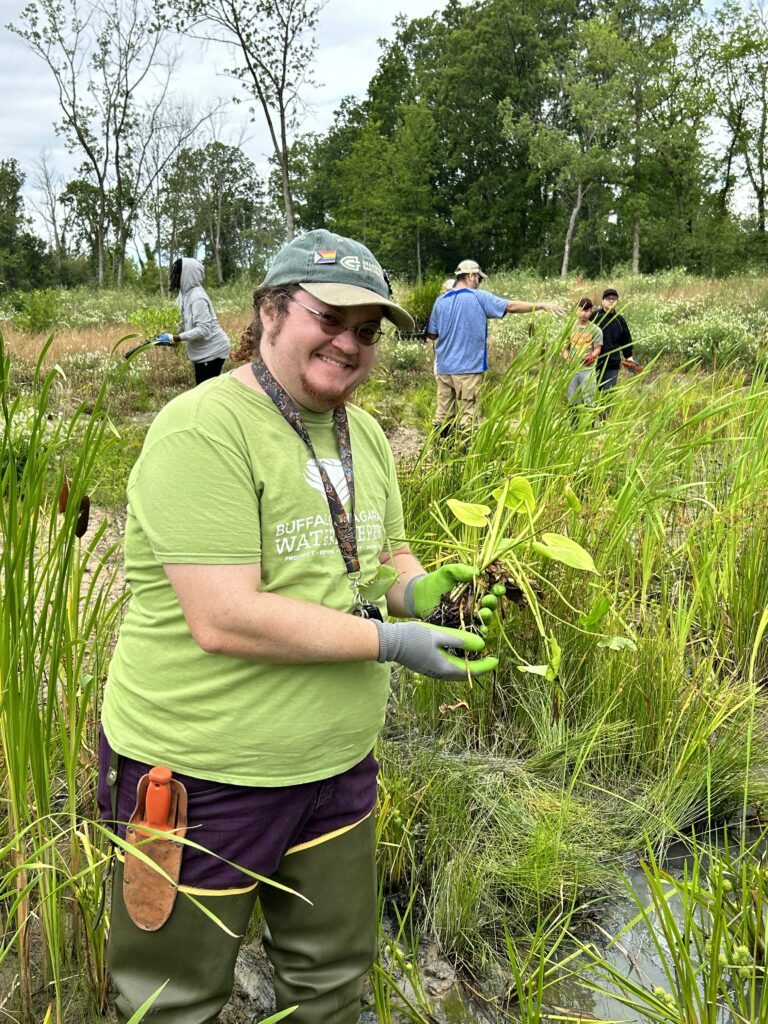
Kat is looking forward to connecting adaptive management of restoration sites with community work, and kayaking! They have horticultural experience from NCCC and recent classes in ecology at the University of Maine.
What have you personally gotten out of the experience?
Kat: I’ve gotten a huge confidence boost! Being out of the field for several years, I wasn’t sure how rusty my skills were – both professional and interpersonal. I’ve been pleasantly surprised how welcoming and encouraging everyone has been about individual experiences, skillsets, and limits. That last one was especially refreshing, as I’ve never been in an environment where people truly meant safety first. Overall, the experience has been both professionally and emotionally fulfilling.
Were there any surprises for you based on expectations prior to starting this program?
Kat: I was surprised at how easy plug planting was, actually! Who knew power tools had so many alternative uses?😂 Jokes aside, it’s been nice to know that the plantings don’t need to be so precise – we’re helping re-establish native wetlands, not starting a farm or a formal garden. There’s a real sense of accomplishment and hope in knowing a few people can establish 500 new plants in an afternoon. With a little time and effort, we can make a difference!
What’s the RAMP program been like for you?
Kat: The RAMP program has been a lovely reminder that it’s the people who make the environmental field so special. Everyone has been eager to share what they know, learn from others, and encourage folks to blaze their own path – along with tips on how to do so! I’d encourage anyone with any level of interest in environmentalism to apply to be a RAMP Steward in the future.
What do you hope to take from this summer experience and how will it help you out in the future?
Kat: I hope to take my knowledge of the “unposted job market” to go and find a job! I’ve always known that not all openings are advertised, but it’s been real eye-opening about how many opportunities are out there if you just have the courage to ask! Even more than the professional advancement, I’ll be taking the confidence that this opportunity cultivated to be a better global citizen, whether or not I wind up working in the field.
Skyler Braeges
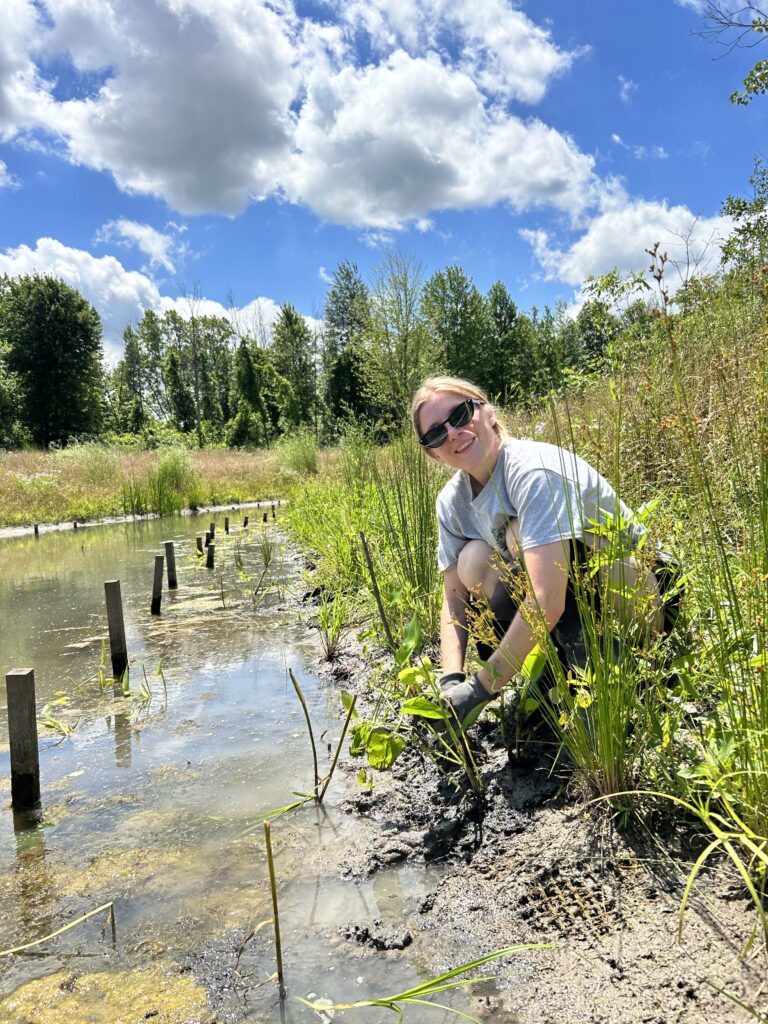
Skyler is passionate about ecological communities and restoration and has experience being an Environmental Steward at Letchworth and is looking forward to expanding upon existing habitat management skills. Skyler will also mentor a Buffalo YELP graduate during his first year at SUNY Buffalo State University. As Sklyer is currently a student at the college, one of Waterkeeper’s YELP students reached out to to ask if she would help him find his way his first year.
What have you gotten out of this experience?
Skyler: Throughout the program I gained invaluable insights into restoration, community engagement and environmental stewardship. Collaborating with experts and fellow participants in the program exposed me to diverse perspectives and innovative ideas. The RAMPS program taught me the significance and benefits to creating living shorelines to improve water quality and increase biodiversity.
What’s it been like being in the RAMP program?
Skyler: The program was an immersive and an undeniably positive experience. I appreciate the opportunity to witness the positive impacts of our efforts on the community and environment. Working alongside a local non profit like Buffalo Niagara Waterkeeper was inspiring and brought me a lot joy.
How do you think this program will help you out in the future?
Skyler: Throughout the summer I have gained valuable experiences, knowledge and formed great connections. These new insights have brought clarity and a wealth of knowledge I will undoubtedly carry with me in upcoming endeavors!
Sam Wrobel
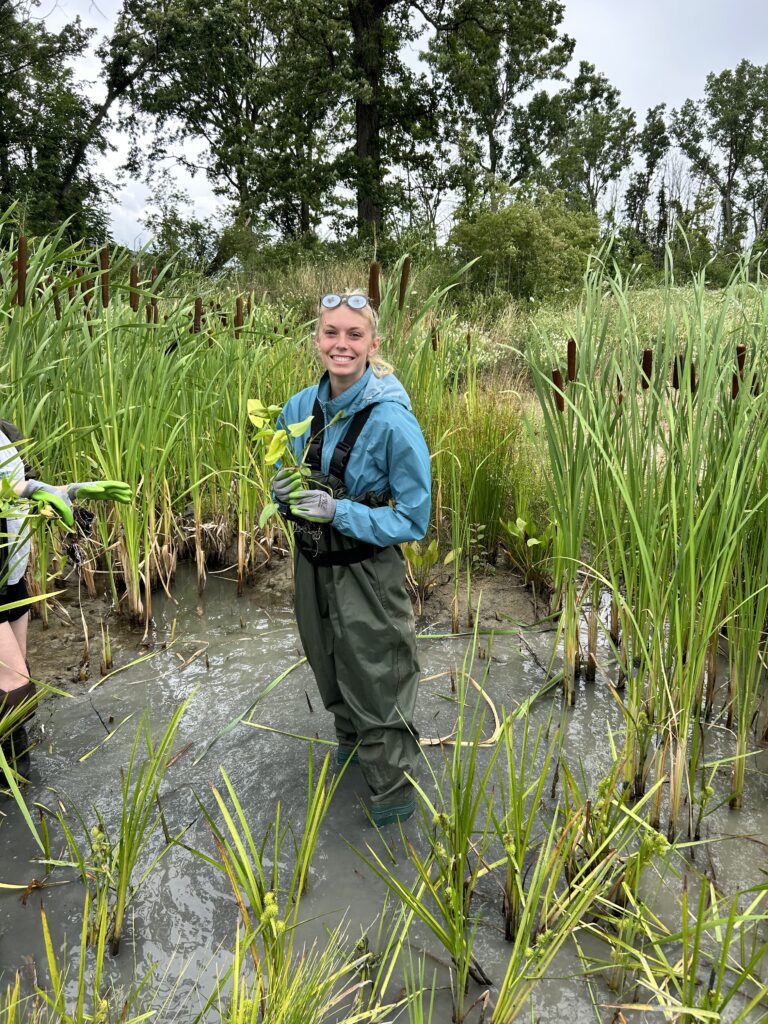
Sam is looking forward to gaining experience that will support their career development in environmental conservation. Samantha is also a Niagara University student and passionate about community engagement.
Can you tell us what the RAMP program has been like for you?
Sam: Throughout my time in the RAMP program I have gained a whole new set of skills that range from restoration work to community engagement. Not only did I learn new techniques of how exactly to combat riparian and wetland restoration, but those skills were directly applied to various sites around WNY. From plug planting to invasive control, each event we took part in will make a difference in restoring these sites back to their original state. It is especially rewarding to see these sites succeed, even if its just weeks after. There is also so much more to this program that has been rewarding, such as working alongside the YELP mentorship students and watching them grow their skillset and appreciation for our local environment.
Were there any surprises for you based on expectations prior to starting this program?
Sam: Something that I wasn’t expecting was how at every site we would be working alongside different people from different career backgrounds. For example, not only were we with the Waterkeeper staff (who are all amazing!), but we also got introduced to Josh and Maris from Lyceum at Silo City and got to see the work they have been doing (this just being one specific example). We also got to spend time at the North Tonawanda Botanical Gardens, meet and work with volunteers from the community and so much more. I believe it’s rewarding to work amongst so many people who all share the same passion as you.
What are your thoughts on the RAMP initiative?
Sam: Being in the RAMP program has been such a rewarding experience. Not only did I learn so many new things about our local WNY waterways and restoration projects, but I was also able to create new connections amongst staff, community leaders, my fellow RAMPs, and of course the YELP students. This was all while having so much fun at every session we had. Learning is so much better when you are in a fun and supportive work environment. I highly recommend this program to anyone interested within the environmental field seeking new experiences.
How will you use this experience once this is over?
Sam: There are a few things I hope to take from this experience, one major thing being the new understanding of how restoration projects truly work. Restoration of degraded habitats is no simple task, and this summer we learned all of the details and work that goes into these large scale projects. The funding, planning, the work itself, and most importantly the maintenance and upkeep afterwards is all part of every project completed. Now that I know and have participated in some of these steps, it will help me get a better idea of what my future could hold, especially with me wanting to go into the conservation and/or restoration field.


